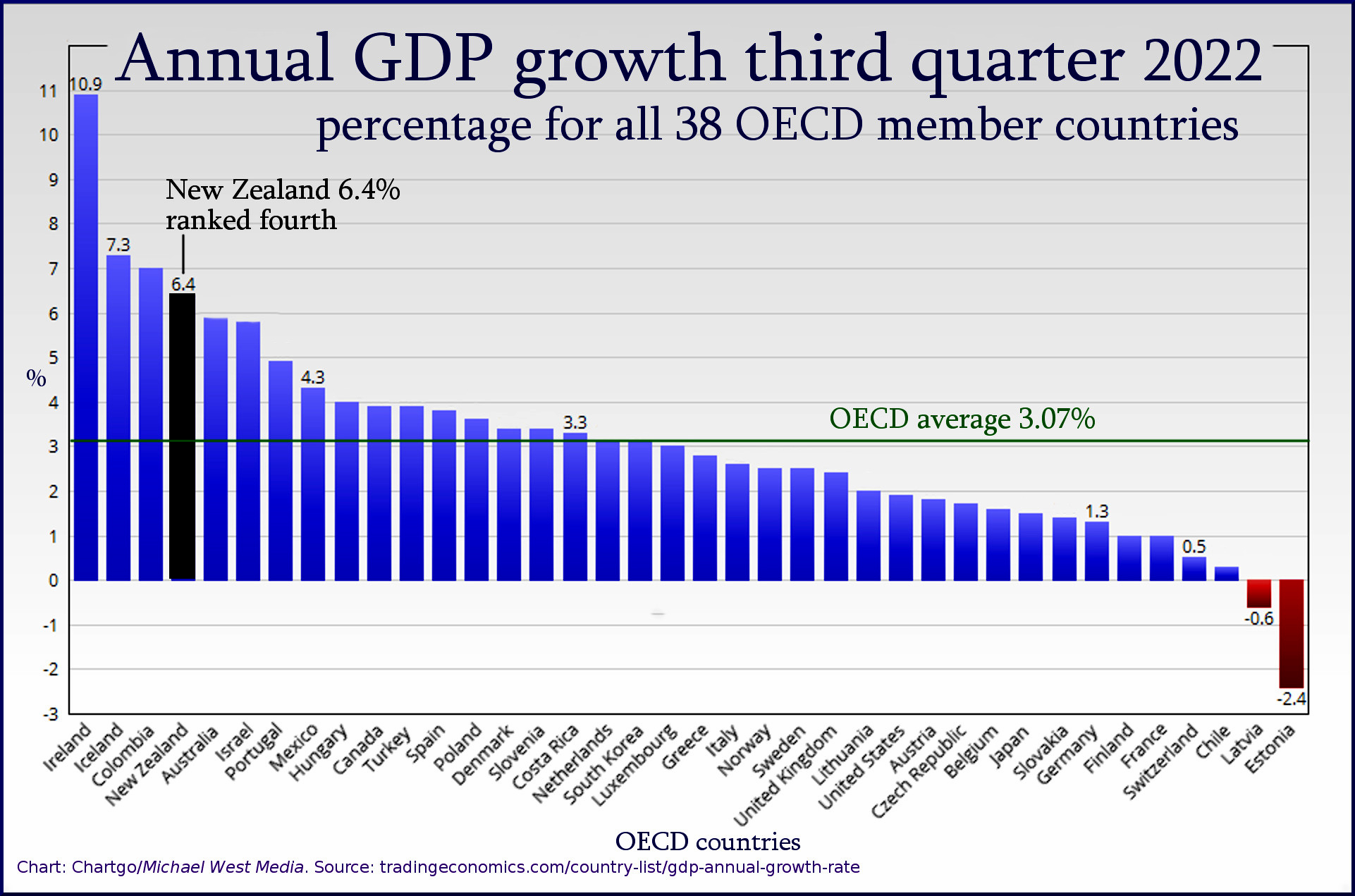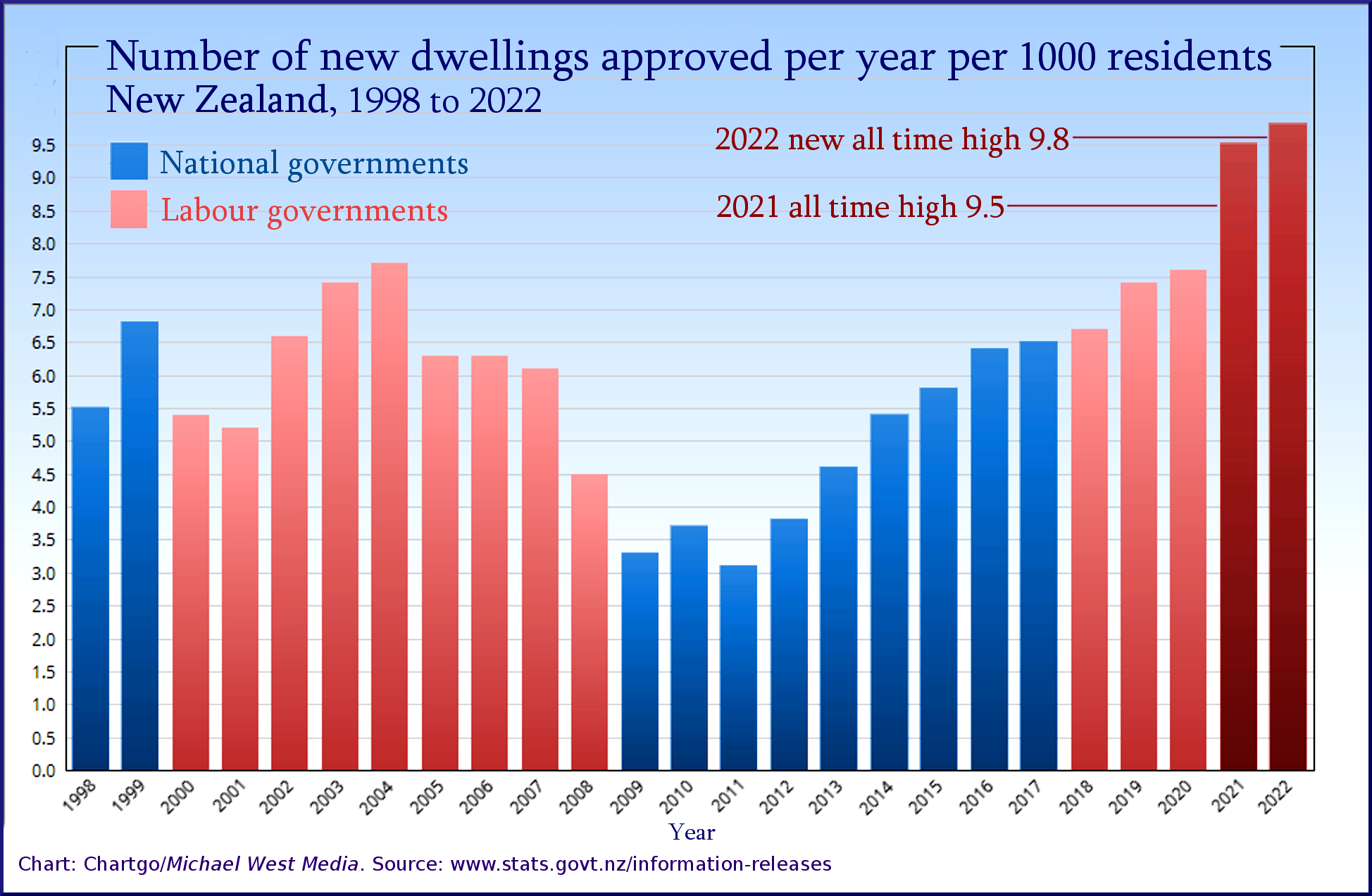As the world is thanking Jacinda Ardern profoundly for her 14 years in New Zealand’s Parliament and more than five as prime minister, a large number of white male scribes have joined in a frenzy of extraordinarily bitter attacks. Alan Austin reports on her economic performance.
Jacinda Ardern announced on Thursday her intention to retire from the prime ministership in February and from the parliament at the October election. Condemnations from the conservative media are remarkably fact-free.
Shutting down the engines of growth
Greg Sheridan writing in The Australian wailed,
“All her economic instincts were bad, all her strategic instincts were bad. She had a great desire to undo productive economic reform and remove or shut down the engines of economic growth for what should be a nation of limitless opportunity.”
James Macpherson on the Bolt Report claimed,
“Jacinda Ardern wants to be remembered for being empathetic and kind. Well, she won’t be remembered for building a strong economy.”
The Daily Mail’s Guy Adams opined that,
“Back in New Zealand, where this progressive superstar has never been quite so popular as she has overseas, voters are facing a cost-of-living crisis, spiralling crime rates and soaring inflation. Housing is increasingly unaffordable and the economy is on the verge of a recession …”
The Flat White column at The Spectator asserted,
“Labour is aware that a failing economy is bad for the polls, with Ardern previously overseeing a pay-cut in solidarity.”
We now have annual GDP growth for all 38 wealthy OECD members. New Zealand now ranks fourth, the highest ranking since records have been kept. See grey chart, below.
At 6.4 per cent, New Zealand’s annual economic growth, far from being “on the verge of a recession” is double the rate of the Netherlands, South Korea, Italy, Norway, Sweden and the United Kingdom. It is three times that of the USA and four times Japan, Germany, France and Switzerland.
When Ardern became prime minister in October 2017, New Zealand’s annual GDP growth was a modest 3.0 per cent which ranked 19th in the OECD.
Employment
The jobless rate has been at 3.4 per cent or lower since June 2021. Between September 2021 and March 2022, the rate was 3.2 per cent, the lowest since records have been kept.
That ranks fifth in the OECD, beaten only by Switzerland, Norway, Denmark and Japan.
Job participation had reached an all-time high of 71.2 per cent just before Ardern took office. She kept this within what seems to be an optimum band between 69.9 and 71.2 per cent throughout her tenure, until the third quarter last year, when it reached a new record high of 71.7 per cent.
Labour productivity was a modest 124.1 when Ardern took office. This has increased steadily since then, except for a blip during the Covid recession, and hit a new peak of 132.02 in the latest quarter.
Wages have increased satisfactorily from NZ$30.51 per hour in Ardern’s first quarter to NZ$37.93 in the last measure published.
Further fun facts and figures
New Zealand’s current inflation rate is 7.2 per cent, just below the peak of 7.3 in the previous quarter. This is well below the OECD average of 11.6 per cent, ranking around eleventh. Given the global challenges, it is quite false to characterise this as “soaring”.
Ardern’s Government has shone in budget discipline, with healthy budget surpluses in 2017, 2018 and 2019. The pandemic recession year caused a deficit of 7.3 per cent of GDP, with that improving substantially in 2021 to just 1.3 per cent of GDP.
Housing approvals
The Australian’s Greg Sheridan wrote:
“In substance, Ardern was a flop … She promised the government would build 100,000 homes, it built barely 1000.”
We read earlier the Daily Mail hack bemoaning “Housing is increasingly unaffordable …”
Well, according to Stats NZ, total housing starts have risen in every Ardern year and boomed over the last two. In the first five years of the previous National Government, housing approvals averaged 3.7 per year per one thousand residents. Through Ardern’s five years, they averaged 8.2 per year. See blue chart, below.
Economic Freedom
Finally, the rankings on economic freedom compiled by Heritage Foundation in the USA give the Ardern administration huge bragging rights.
Heritage ranked New Zealand the top economy in the OECD in four of the last five years. Global ranking has fluctuated between second and fifth.
If the right wing media read these numbers when the Nationals were in office, they would have proclaimed them from the mountain tops.
Room for improvement
This is not to claim all has gone perfectly. Youth unemployment has been above ten per cent since records have been kept in 2004 until the last quarter of 2021, and above 13 per cent for much of that time. It tumbled to 8.83 per cent in 2021and has remained below 9.6 per cent since. Still too high.
Other variables which could do better include low income wages, the distribution of wealth and income and the value of the Kiwi dollar. Concerns about emissions reduction also remain.
Comprehending the critics
Could it be that Ardern is young, female, candid and honest, widely-respected abroad, genuinely loved at home, an open and proud socialist, and a winner? In other words, the direct opposite of Donald Trump, Scott Morrison and Boris Johnson? Could it be that they cannot abide her succeeding in economic management where their heroes have all dismally failed?
Is this why they must shamelessly falsify the record? Because falsify it, they have.
Blunders again: Murdoch media gets attack on New Zealand PM Jacinda Ardern wrong
Alan Austin is a freelance journalist with interests in news media, religious affairs and economic and social issues.



